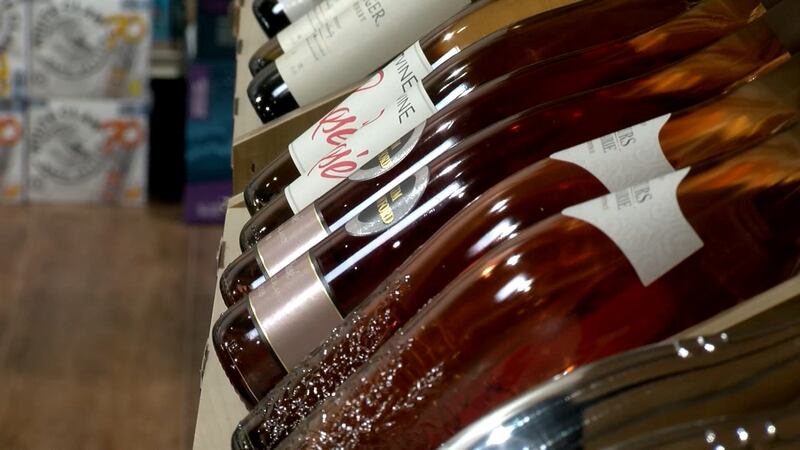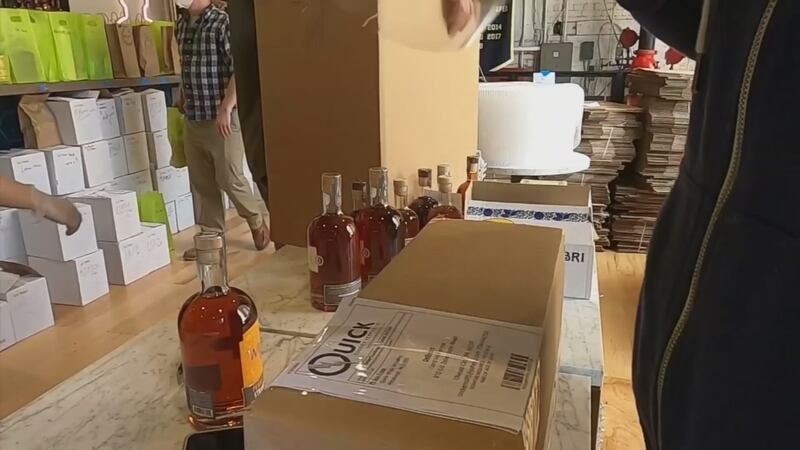HARRISBURG, Pa. (AP) -- Workers will be back on the job at more than 100 shuttered state-owned liquor stores to help process online orders, Pennsylvania’s liquor agency said Thursday.
Gov. Tom Wolf's office gave the OK to reopen 106 of the state system's 600 stores for online fulfillment but not for public retail sales, a Pennsylvania Liquor Control Board spokeswoman said.
The store closings have been a source of widespread complaints, especially since the state's swamped online ordering system has been unable to meet customer demand in a state where the liquor board controls the overwhelming majority of retail sales of hard alcohol.
Employees have been getting called back, and stores are expected to open next week for workers.
The plan is to require enhanced sanitation and social distancing measures and to limit the number of employees per location, to help avoid transmission of the new coronavirus.
Have questions about the spread of the coronavirus? We have an entire section dedicated to coverage of the outbreak. CLICK HERE for more.
TRENDING NOW:
Wolf, a Democrat, closed the stores about a month ago.
Wendell Young IV, president of Local 1776 of the United Food and Commercial Workers Union, which represents about 3,500 of the store clerks, said the PLCB plan is designed to meet a crushing demand for online sales.
"Our goal is to begin opening those 106 early next week and throughout the week," Young said Thursday. "It's all going to depend on making sure the stores are ready first, and the staff is trained first."
Before the COVID-19 crisis, online sales had been a small part of the state liquor system's $2.7 billion in annual sales. The agency also sells much of the wine consumed in the state.
Through online fulfillment centers in Pittsburgh and the Philadelphia suburbs, the agency was able to fill only about 9,600 orders worth $2.1 million from April 1-8.
Young said the liquor board has also been reconfiguring the 13 centers that it runs across Pennsylvania to fill orders for restaurants and other licensees. Those centers are not open to the public, but instead will be packaging online orders for delivery.
Young said "a couple" of those 13 so-called "warehouse stores" are now operating and rest will be restarted gradually.
Producers, breweries, wineries and distilleries, and privately owned beer distributorships, have been permitted to sell during the shutdown of nonessential businesses.
© 2020 Associated Press









